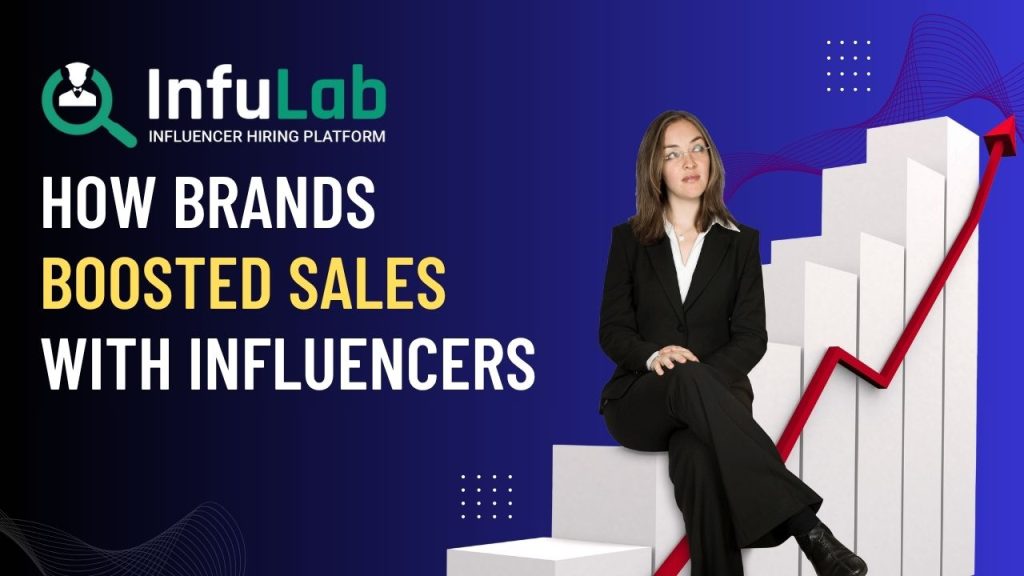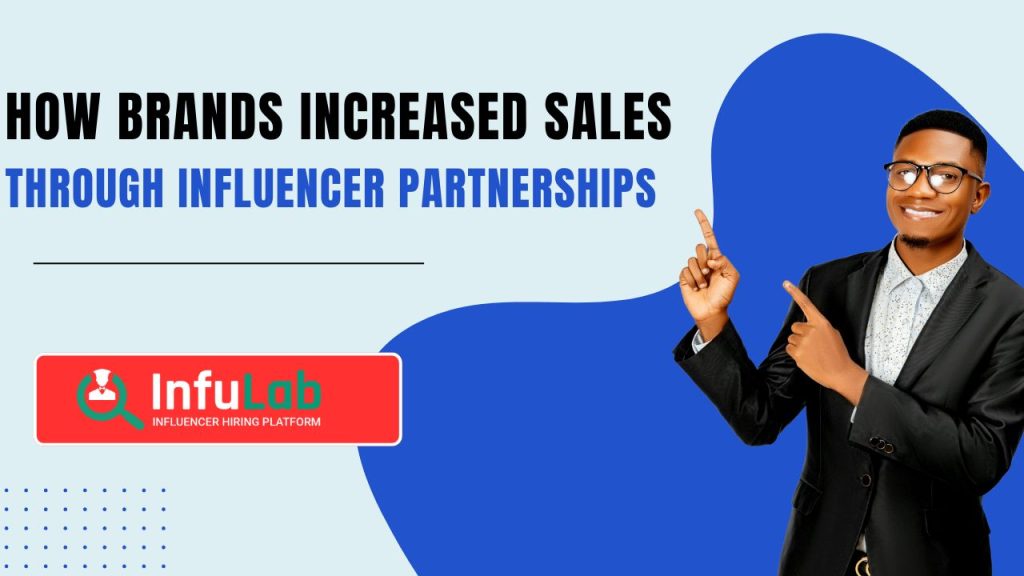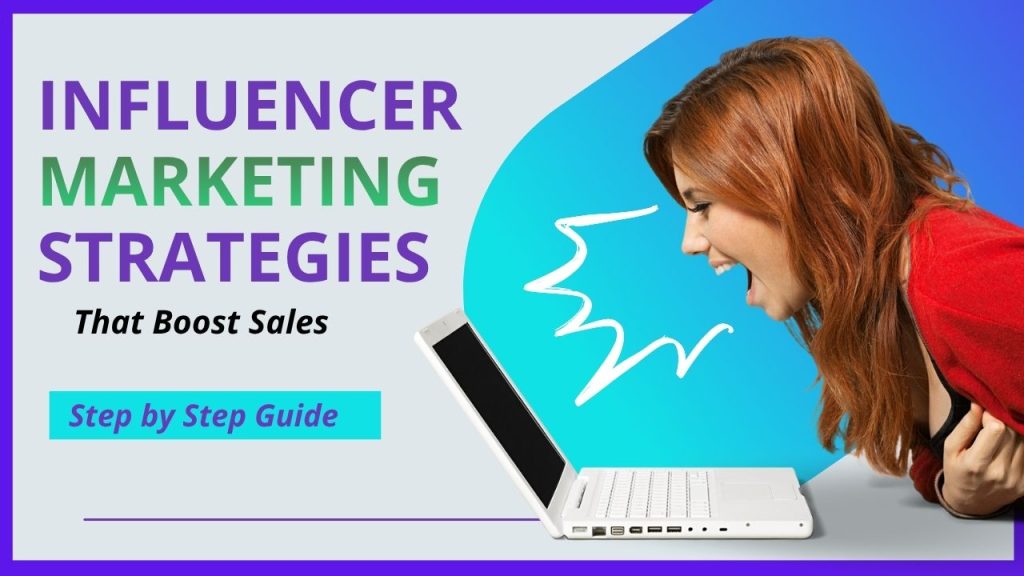How Brands Increased Sales by Hiring Influencers: A Deep Dive with InfuLab

Influencer marketing, or hiring influencers to promote brands, is the new way to attract potential customers and gain brand awareness. Relevant influencers already have dedicated followers who can become your potential buyers. So, hiring influencers to mention and promote your brand or product is a better way than traditional ads.
In recent years, small brands boost sales by hiring influencers to expand their repeat customers with influencer business models. Even big fish of each industry are hiring micro and macro brand promoters for their companies.
Let’s give you a small example of the impact of influencers on businesses. A Pan-Asian beauty brand hired nano influencers from the local area to promote their new launches through TikTok and Facebook short videos. The conversion rate increased 1.8x after those makeup artists mentioned the products.
The rising demand for influencers in businesses is creating new influencer hiring marketplaces. There are ready-made solutions like InfuLab that can help you create an influencer marketplace without any web development hassle. You can attract both brands and promoters to come under your roof and make business deals that will leave commissions for you.
So today, I will explain how brands can benefit by hiring influencers in advertising. You’ll also get to know how you can utilize the trend of influencers promoting products and create a marketplace for passive income.
Understanding Influencers and Their Role in Marketing
First, let’s have a look at the basic concept of influencers.
What Does Influencer Mean?
An influencer is a known figure through their personal social profiles who can motivate or push their followers or fans to make a decision. It can be influential to buy goods, visit a destination, or take some actions online.
The authority, knowledge, position, and relationship with the audience make someone a successful influencer. Basically, someone with 10-100 thousand followers is categorized as a micro influencer. Whereas macro influencers have more than 100 thousand followers locally or globally. Influencers who have millions of global audience are considered celebrities who often partner with large enterprises to become their face.
A social media influencer builds trust with their followers. They create content that followers can highly relate to and consider them (influencer) authority in the niche. Brands can reach out to content creators who make videos or posts on topics similar to their products and offer them to mention or promote those products.
Why Influencers Matter for Brands in 2025
Brands still ask, are influencers still relevant? Yes. Data shows that on average, brands earn about $5.78 for every $1 spent in influencer marketing. Brands boost sales by hiring influencers and influencers gain reputation by becoming face of a renowned company.
Engagement from micro and nano influencers often beats that of macro influencers in many niche contexts. Most brands (over 80%) now find influencer-led marketing success more effective than many traditional ads for awareness and conversion.
Emerging trends show that short-form video content, loyalty via long-term influencer partnerships, and niche audiences are growing in importance.
How Brands Increased Sales Through Influencer Partnerships

Here, I will share real examples and the factors that drive successful outcomes when brands use influencers to promote products.
Case Studies and Real Examples
A well-known case: Bigelow Tea used lifestyle influencers to present health and wellness themes. The campaign resulted in over 32,000 blog engagements and about an 18.5% increase in actual product sales.
Another case: Iceland Foods worked with food and lifestyle influencers to introduce ready meals; during that campaign, sales rose by approximately 20%, while brand engagement metrics like shares, likes, and reach all jumped significantly.
What Actually Drives Results
Trust and relatability lead the way. When influencer content resonates with audience values, product placement feels natural. Storytelling helps: showing real-life use cases rather than scripted promotion moves people. Niche targeting matters: a micro influencer in a specialized field often delivers higher conversions than a generic celebrity. Consistent audience engagement over time builds loyalty and repeat purchases. Promotions such as affiliate links, discount codes, or gifts motivate both the influencer and the audience
How to Work with Influencers the Right Way
Now, let’s explain the steps to find influencers, get them to promote your product, and align collaborations for maximum impact.
How to Find and Connect with Influencers
You start by defining your brand’s niche and audience. Then search social platforms for creators who match your values. Examine their engagement rate, follower authenticity, content style, and audience demographics. Use tools or marketplaces to filter by metrics like reach, past results, and content type. Connect with influencers via direct outreach, email, or via platforms designed to bridge brands and creators.
How to Get Influencers to Promote Your Product
You reach out with clear value: explain benefits, offer fair compensation, or provide product samples. If the budget is tight, you can offer affiliate arrangements or gifting in exchange for content. To ask an influencer to promote your product, share vision, show proof of past success, and be honest about expectations. Sometimes you find influencers willing to promote your product for free in exchange for exposure or a partnership if you offer them something valuable.
How to Collaborate with Influencers for Maximum ROI
You set goals first: do you want brand awareness, conversions, or both? You plan content co-creation: let the influencer contribute ideas to ensure authenticity. You track results: use discount codes or trackable links to see sales boost campaigns. You monitor metrics like engagement, referral traffic, and conversion rate. Then adjust your strategy based on what content works best.
Influencer Marketing Strategies That Boost Sales

I want to highlight strategies that consistently help brands increase brand sales with influencers.
Before laying out sub-strategies, note that matching values and audience is key.
Matching the Right Influencer with Your Brand
You align brand tone, values, and product style with influencer persona and audience. Tone mismatch can reduce credibility. You also check audience alignment to see if influencer followers fit your ideal customer. A well-matched influencer endorses a product naturally.
Multi-Channel Collaboration for Higher Reach
You combine platforms: Instagram Reels, TikTok, YouTube Shorts, perhaps even email and blogs. Cross-link content across channels to reinforce the message. Use paid ads to amplify influencer content. Let influencer content feed into broader marketing, and influencers in business become part of all touchpoints.
Measuring Success and Sales Impact
You choose metrics: engagement rate, reach, conversions, traffic, and ROI. You use trackable links or affiliate codes for direct sales measurement. You monitor cost per acquisition, return per spend. Tools or dashboards help you see which influencer partnership results yield the best outcome.
Common Mistakes Brands Make When Working with Influencers
I’ve seen brands stumble by misstating objectives, choosing the wrong influencers, or not using performance data. Over-focusing on follower count leads them to partner with influencers who have big reach but low engagement.
Sometimes they limit creative freedom too much, making content feel forced. Others don’t track conversions, so they don’t know if influencers promoting products deliver value.
InfuLab helps address many coordination challenges: matching, communication, analytics, all built in, so brands avoid these pitfalls.
How InfuLab Helps Brands Build and Manage Influencer Campaigns
Let’s explain how InfuLab works and why it matters if you want to increase eCommerce sales with influencers and run influencer partnership results reliably.
What Is InfuLab?
InfuLab is a ready-made influencer marketplace script by ViserLab. It allows you to set up a platform connecting influencers with brands. You get a system with influencer profiles, matching tools, campaign workflows, and analytics. It removes guesswork and reduces time spent coordinating with influencers manually.
Features that Empower Brand-Influencer Collaboration
InfuLab provides smart matching so brands find influencers whose audience fits. It includes dashboards to monitor influencer sales, campaign reach, and content performance. It supports communication tools so you can coordinate with influencers efficiently. It also allows tracking of conversions and revenue growth through influencers in one place.
How InfuLab Saves Time and Boosts ROI
You spend less time managing spreadsheets, emails, and manual follow-ups. InfuLab automates many tasks: matching, tracking, and payout. You can launch influencer-led marketing success campaigns faster with clearer insight. That efficiency leads to better profits, lower wasted spend, and more predictable revenue from influencers promoting products.
Future of Influencer Marketing: Trends to Watch
I believe staying ahead of trends keeps brands growing online with influencers. The rise of micro and nano influencers will continue, because they offer high engagement and lower cost. AI-driven matching will help brands select influencers more smartly. Performance-based deals will become more common; brands will pay for results rather than just reach. Authentic storytelling and transparency will matter more than polished promotion. Platforms will shift toward short form video and creator commerce. InfuLab remains flexible for those shifts.
FAQ
What does influencer mean?
An influencer is someone who reaches and persuades an audience through content, trust, and authority. They often create content on social media and affect buying decisions.
How do brands work with influencers?
Brands identify influencers whose audience matches theirs. Brands contact them, agree terms, supply product or compensation, and jointly deliver content. They track engagement and sales metrics to gauge success.
Are influencers still relevant for modern businesses?
Yes, influencers are still relevant because they drive both brand visibility online and increase conversions with influencers beyond traditional ads. Data shows strong ROI and growth in influencer business.
How to get influencers to promote your product for free?
Offer value in lieu of payment: free product, affiliate deals, exposure, or long-term benefit. Build genuine relationships and show what’s in it for them.
Which benefit of partnering with influencers refers to increased visibility?
Influencer collaboration benefits include enhanced brand promotion strategy, influencer-driven brand awareness, and brand visibility online.
Summary
Brands grow their sales by hiring influencers because those collaborations offer trust, reach, and conversion. Stories prove micro or niche creators often outperform big names when content aligns and metrics are tracked. Tools like InfuLab remove friction from influencer business, giving you structure, matching, and analytics to manage influencer promotions efficiently.
If you want to increase brand sales with influencers and set up a platform that connects influencers with brands, InfuLab may be your answer. Ready to build your own influencer hiring platform? Explore InfuLab today.